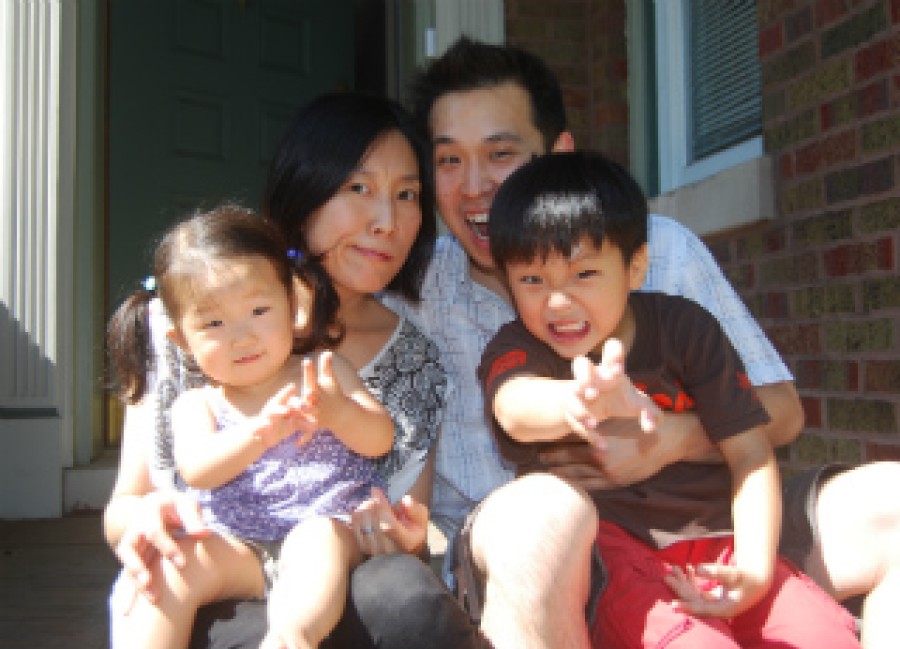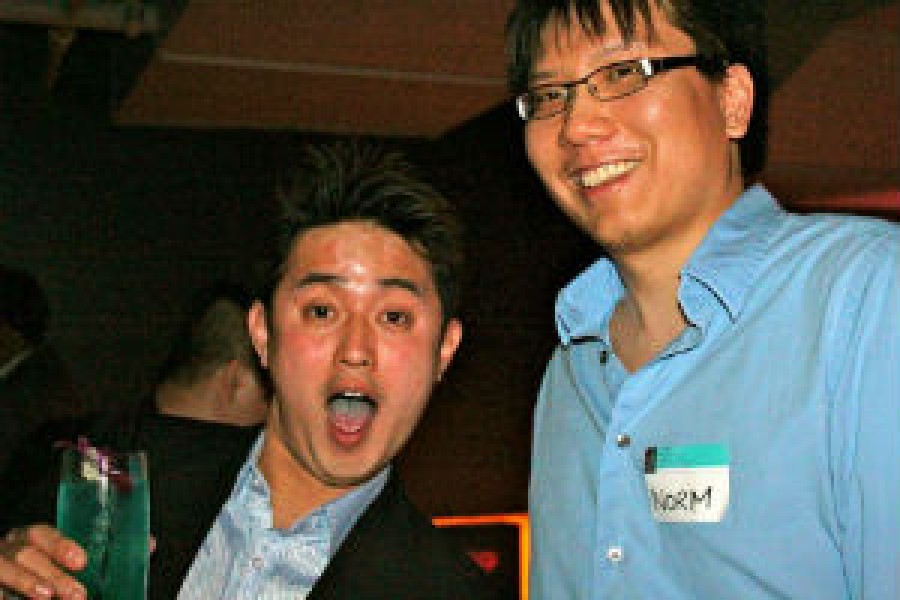Asian-American men less likely to date interacially
By Niala Boodhoo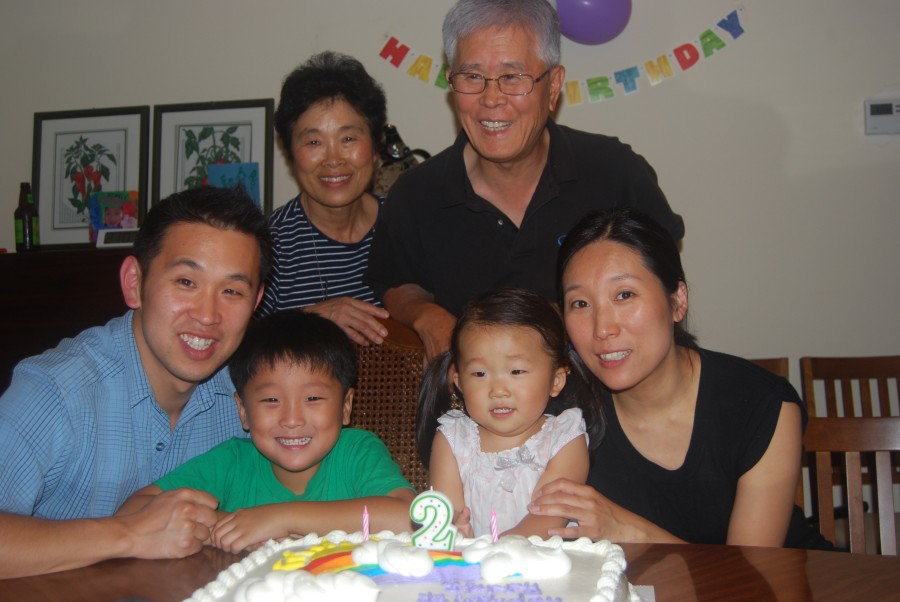

Asian-American men less likely to date interacially
By Niala BoodhooWho you date - as well as who you marry - is one of the most intensely personal decisions someone makes. So it’s easy to overlook the broader role society, culture and yes, even race plays in that decision.
Hardy Kim is a second generation Korean-American. He grew up in Gross Pointe, Michigan, and now lives in Oak Park. From an early age, he was told he needed to marry a Korean woman. So naturally, he rebelled.
“I didn’t necessarily say to myself, I wouldn’t marry a Korean-American woman, but I definitely thought, there’s no way I am going to marry a women straight from Korea,” he said.
Marriage rates across the U.S. are generally declining. But they’re still high for Asian-Americans. As one of the smallest racial minorities here, it’s not that surprising Asians have some of the highest rates of interracial marriage. But Asian-American women are twice as likely as their male counterparts to marry outside their race.
Here’s why.
C.N. Le’s a sociology professor at the University of Massachusetts Amherst. He said that if you look at marriage from a traditional standpoint, many people have viewed it as a way to become more economically successful – or at least, stable.
“So you would think based on that sort of traditional motivation women would marry the most socioeconomically successful men. If that were the sole criteria, then Asian-American men would be near the top of the list,” he said.
But – they’re not. Asian-American men are second only to black women for having the lowest rates of interracial marriage.
Le thinks at least part of this is due to pervasive cultural stereotypes. You know them: Asian-American men are at best nerdy, at worst, neutered or not masculine enough. Le says that creates what he calls a “cultural penalty” in the dating world. And then he cited research that actually quantifies this.
“In crunching the numbers, they found on an aggregate level, Latino men have to make something like $70,000 more than a comparable white man for a white women to be open to dating them,” he said, adding for African-American men, that figure is closer to $120,000.
For Asian-American men? It’s $250,000 more than a comparable white male would make.
“I think that’s kind of telling,” Le said.
But it’s not clear how many Asian-American men are looking for white women to marry.

“Well, because, he’s taking care of his family, too,” he said.
Hardy did end up marrying someone straight from Korea – but they met here, while they were both studying in Chicago. They’ve been happily married for nine years, with two kids, a boy and a girl. The children have Korean and American names.
Prateek Srivastava is a standup comedian. He’s 25. He grew up in Lombard but now he lives in Logan Square.
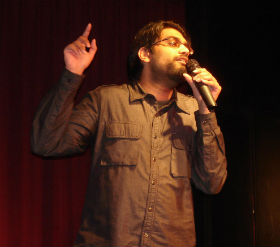
He’s dated both Indians and non-Indians, and when the girl isn’t Indian, the fact that he has come up – often at “weird points”, he says, in the relationship.
Once, he and a girlfriend were talking about movies of their childhood, and Indiana Jones and the Temple of Doom came up.
There’s that scene where an Indian guy eats someone’s heart.
“And so she said, ‘I’m just saying, I don’t think you guys eat hearts but do you think maybe at some point in the past they used to eat hearts?’,” he recounted. “I’m like, no, nobody ate hearts. I mean, most Indians are vegetarian.”
I asked Prateek if it would be easier if he dated an Indian girl or another Asian - or if his parents expect him to end up with an Indian. He doesn’t have a preference either way. And, his parents haven’t really put pressure on him to date only Indians. But the women he dates assume they have.
“In one recent relationship this girl was like, ‘Is this a temporary thing, or are you going to be able to introduce me to your parents?’,” Prateek recalls, adding that he thinks it’s interesting that even across Indian families, he knows that families can be liberal or conversative.
“People just assume we’re homogenous - but we’re not,” he said.
Forget putting just all South Asians into one group. Outside of this country, people of nationalities like Japanese or Indian or Korea would never think of themselves all as being put into one big category.
This is naturally reflected in marriages here, where Koreans are less likely than Japanese or Indian people to marry outside their ethnic groups.
“I don’t think any of us is really born Asian-American, I think that most of us are who are born here go through a similar sort of phase process,” said Jeff Yang, who writes the Tao Jones column for the Wall Street Journal. He likes to point out that concept of “Asian American” as a singular group is a uniquely American one.
Yang says Asian-American identity usually starts in college, where many Asians – he jokingly refers to the University of California schools as the Historically Asian colleges – tend to congregate.
That kind of commonality is even playing itself out in marriage data: of Asian-Americans marrying other Asian-Americans. Researchers call it inter-ethnic Asian marriage.
“The fastest number of Asian-Americans who are not marrying Asians of their own ethnicity are marrying other ethnicities,” Yang said. “This is something which I think is culturally the product of some really interesting phenomena.”
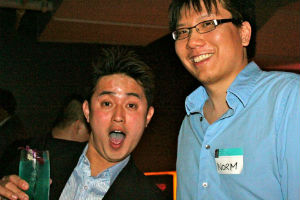
His Facebook profile is full of pictures of him on Chicago’s Asian-American scene, everything from TAP – Chicago (the Taiwanese American Professional Group), to Ascene, an online magazine that also holds monthly events, to the Asian American Journalists Association (full disclosure: where this reporter first met Norm).
He’s 28. He says TAP is his favorite group – he’s even on their board, even though he’s not Taiwanese. He lives in Schaumburg, where he grew up.
“My parents are very, very, very traditional,” Norm said. “So they’ve always been like, you know have to date and marry a Chinese Asian girl. They pretty much said, ‘Norm, if you don’t give me Chinese grandchildren, we will be very sad and we will be unhappy with you’.”
Norm sort of listens. He says he’s really only ever been attracted to women of East Asian descent, so that’s who he dates – even women who aren’t Chinese.
His younger brother married outside their race – as did many of his cousins. Norm says that does put more pressure on him. But he says when he’s ready to marry, it will be his choice - not his parents.
The data looking at Asians marrying other Asians is just a few years old. But if people like Norm Leong are well, the norm, it could continue.
